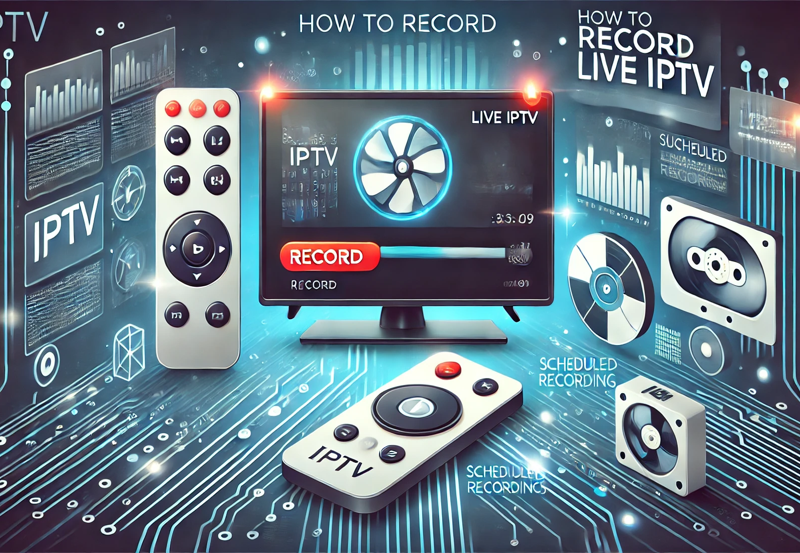Understanding Bandwidth Requirements for IPTV Streaming
One of the most critical factors for a seamless IPTV (Internet Protocol Television) experience is bandwidth. Bandwidth determines how smoothly content streams to your device without buffering or interruptions. Whether you’re watching live TV, on-demand content, or 4K videos, understanding bandwidth requirements can help you optimize your IPTV setup and ensure uninterrupted streaming.
This guide breaks down bandwidth requirements for IPTV streaming, factors that influence them, and tips to optimize your internet connection.
What is Bandwidth in IPTV?
Bandwidth refers to the amount of data your internet connection can transfer per second, typically measured in Mbps (megabits per second). In IPTV, bandwidth affects:
- Streaming Quality:
- Higher resolutions (e.g., HD, 4K) require more bandwidth.
- Stability:
- A stable connection ensures smooth streaming with minimal buffering.
- Device Support:
- More devices streaming simultaneously require higher bandwidth.
Recommended Bandwidth for IPTV
The bandwidth you need depends on the streaming resolution and number of devices in use. Here’s a general guide:
| Streaming Quality | Recommended Bandwidth (per device) |
|---|---|
| Standard Definition (SD) | 3-5 Mbps |
| High Definition (HD) | 10 Mbps |
| Ultra High Definition (4K) | 25 Mbps |
| 8K Streaming | 50 Mbps |
Factors That Influence Bandwidth Requirements
- Streaming Resolution:
- Higher resolutions like 4K and 8K require significantly more bandwidth.
- Codec Efficiency:
- Modern codecs like H.265 (HEVC) are more efficient, reducing bandwidth requirements compared to older codecs like H.264.
- Number of Devices:
- Multiple devices streaming simultaneously increase overall bandwidth usage.
- Streaming Protocols:
- Protocols like HLS (HTTP Live Streaming) and DASH (Dynamic Adaptive Streaming) adapt to available bandwidth, ensuring smooth playback.
- Internet Traffic:
- Network congestion during peak hours can affect available bandwidth.
How to Calculate Bandwidth Needs for IPTV
To calculate the total bandwidth required for IPTV:
- Determine the Number of Devices:
- Multiply the bandwidth required per device by the number of devices streaming simultaneously.
- Account for Other Activities:
- Include bandwidth for non-streaming activities like browsing, gaming, or downloading.
Example Calculation:
- 2 devices streaming HD (10 Mbps each) = 20 Mbps
- Additional bandwidth for other uses = 5 Mbps
- Total bandwidth required = 25 Mbps
Common Issues Caused by Insufficient Bandwidth
- Buffering:
- The stream pauses frequently to load content.
- Low Resolution:
- The player reduces video quality to adapt to the available bandwidth.
- Playback Errors:
- Streams may fail to load or drop frequently.
- Lag in Live TV:
- Significant delays in live streaming.
Tips to Optimize Bandwidth for IPTV
1. Use a Wired Connection
- Why: Ethernet connections are more stable and faster than Wi-Fi.
- How: Connect your IPTV device directly to the router using an Ethernet cable.
2. Upgrade Your Internet Plan
- Why: Ensure your plan provides enough speed for your household’s usage.
- How: Choose a plan that meets or exceeds the required bandwidth for all devices.
3. Prioritize IPTV Traffic
- Why: Prevent other devices from consuming bandwidth needed for IPTV.
- How: Use Quality of Service (QoS) settings on your router to prioritize IPTV traffic.
4. Optimize Wi-Fi
- Why: Weak Wi-Fi signals can reduce streaming quality.
- How:
- Place the router in a central location.
- Use a dual-band or mesh Wi-Fi system.
- Avoid interference from other devices.
5. Reduce Network Congestion
- Why: Multiple devices can strain bandwidth during peak usage.
- How:
- Limit streaming to fewer devices.
- Schedule downloads or updates during off-peak hours.
6. Enable Adaptive Streaming
- Why: Adjusts resolution automatically based on available bandwidth.
- How: Check your IPTV player’s settings for adaptive streaming options.
7. Test Your Internet Speed
- Why: Ensure your connection meets the requirements for streaming.
- How: Use tools like Speedtest.net to measure your download and upload speeds.
Bandwidth for Different Streaming Scenarios
| Scenario | Devices | Resolution | Recommended Bandwidth |
|---|---|---|---|
| Single device streaming | 1 | HD | 10 Mbps |
| Family streaming multiple channels | 4 | HD | 40 Mbps |
| 4K movie night on one device | 1 | 4K | 25 Mbps |
| Mixed HD and 4K streaming (3 devices) | 2 HD, 1 4K | HD & 4K | 45 Mbps |
Future Bandwidth Considerations
With advancements in streaming technology and higher resolutions, bandwidth requirements are expected to increase:
- 8K Streaming:
- Requires at least 50 Mbps per device.
- Virtual Reality (VR) and Augmented Reality (AR):
- Bandwidth for immersive experiences may exceed 100 Mbps.
- 5G Networks:
- Will provide faster speeds and lower latency for IPTV streaming.
Conclusion
Understanding bandwidth requirements is essential for a smooth IPTV experience. By ensuring your internet connection meets the needs of your streaming habits and optimizing your setup, you can eliminate buffering and enjoy high-quality video content. Whether you’re streaming in HD, 4K, or planning for future 8K content, having the right bandwidth is key to maximizing your IPTV experience.
Kodi on Smart TV: Complete Guide





